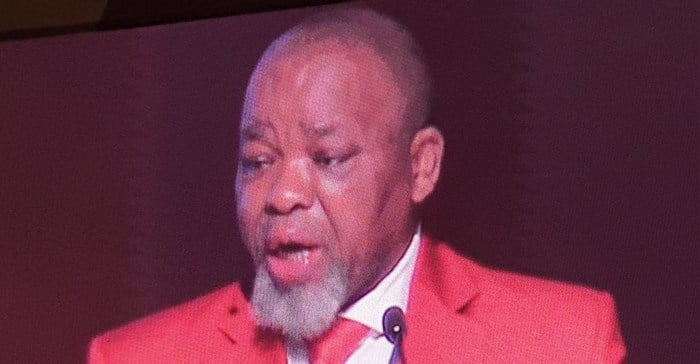
“The Coega IDZ will lay the foundation for new gas-to-power plants. It will also see the conversion of existing power plants from diesel to gas. We also intend to use that location as a base for importing feedstock for the gas-to-liquids refinery in Mossel Bay,” Mantashe, resplendent in a shade of red more readily associated with the Economic Freedom Fighters, told delegates on the opening day of Africa Oil Week.
“The framework for supporting this major programme will be announced by my department in the near term. Linked to this is an amendment to the Gas Act of 2001, which will be tabled in Cabinet soon,” he said.
"Gas-to-power technologies will provide the flexibility required to complement intermittent renewable energy and meet demand during peaking hours. While in the short term, the opportunity is to pursue gas import options, local and regional gas resources will allow for scaling up within manageable risk levels.”
To ensure policy certainty, the minister said his department was in the process of separating minerals and petroleum legislation and the Petroleum Resources Development Bill will be before Cabinet soon. “We separated petroleum so it gets the necessary attention and is not overshadowed by mining.”
Mantashe went on to stress the importance of regional cooperation in providing energy security. “Africa remains the most energy deficient continent globally. Over 500-million Africans lack access to modern forms of energy; and are afflicted by indoor pollution and environmental degradation.
“Agenda 2063 of the African Union enjoins us to develop Africa’s energy infrastructure where all our countries are connected. Our oil and gas needs to be harnessed to deliver modern energy services to all households and businesses.
"Our gas must power plants and other petrochemical facilities in our countries, as it reaches for export markets. This will ensure that we do not always import beneficiated hydrocarbons. Countries in the region need to work together to avoid a race to the bottom,” he said.
Mantashe referred to the major gas finds in the eastern part of the continent especially in Mozambique and Tanzania. “We remain patently aware that one of the oil companies in South Africa played a pivotal role in the monetisation of the earlier gas finds in Mozambique.
Adding that the hydrocarbon find at the Brulpadda field off the coast of Mossel Bay would spur further interest in the upstream potential of South Africa.
“We have taken note global industry shifts and are encouraged that many countries in our continent have set themselves the vision to enter the global gas market and promote the development of a domestic and regional gas market. Natural gas can improve the efficiencies of many industries currently using sub-optimal fuel sources in their production processes and resulting in a turnaround in the industrial capacity and demand in the region,” he said.
Mantashe also touched on the recently released Integrated Resource Plan (IRP) 2019, saying: “The one thing we tried to do is discourage adversities among technologies.”
He once again reiterated that that coal and nuclear weren’t disappearing off the energy source radar anytime soon. “We intend to exploit our natural resource endowment to our benefit,” he said.
The IRP 2019 provides for the extension of the design life of the Koeberg power station near Cape Town, as well as additional new nuclear capacity in the future. “Koeberg is the only nuclear power station on the continent. It is doing well. It is efficient, reliable and cost-effective. We are looking at extending its lifespan for another 20 years,” Mantashe said.
He said, globally, there was a shift towards the development of small, modular reactors compared to a large fleet approach.
“There is a strong debate to say coal must disappear. It will disappear over time, but not soon. We have a more than 30,000MW portfolio of existing power plants, and an abundance of the resource.”
He said new investments would be directed towards more efficient and environmentally responsible coal technologies, including underground coal gasification and carbon capture and storage.
